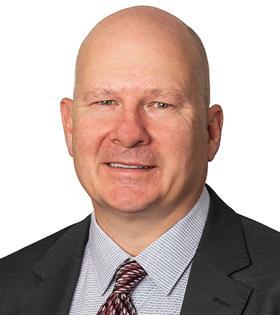By David Atkin, CEO, Principles for Responsible Investment

When I joined the PRI last year, I saw the launch of the PRI in a Changing World signatory consultation as a very well-timed opportunity. Over three months I led 19 workshops with around 400 signatories in 10 countries. I have been involved with the PRI for a long time, but I have never had the opportunity to interact personally with so many of our signatories. The process was incredibly valuable, deeply insightful and has helped to inform the actions we’re now taking, which will set the direction of travel for the organisation.
We undertook the workshops and the survey to better understand our signatories’ needs. Since its inception in 2006, our once-niche responsible investment project has gone mainstream. But faced with a rapidly changing world and an unprecedented level of evolution within our sector, now is the right time for the PRI to ask the question – how can we best serve our industry?
Through the consultation process, and with a primary understanding that responsible investment is fundamentally premised on signatories’ fiduciary duties, we have now begun to form the answer to that question. I am delighted to report that signatories not only see the PRI as relevant and valuable, but also have given us a clear and expanded mandate – demonstrating the appetite for a remit to drive action and ambition across the whole spectrum of responsible investment issues. A separate PRI Board report summarises the findings of the survey, which was completed by 27% of our signatories (a high response rate for work of this nature), and the actions that will follow.
In short, signatories have told us that:
- Within the PRI’s ‘big tent’, their interpretations of responsible investment vary based on numerous factors – including individual mandates and geographic location.
- Over time, they expect to progress their responsible investment activities, but in a voluntary, non-prescriptive way, relevant to their organisation (95%).
- They see the future of responsible investment to include both managing ESG risks, and identifying and acting on sustainability outcomes (63%). But importantly, many (30%) continue to see managing of ESG risks as the sole dimension of responsible investment.
- They are broadly supportive of the PRI’s role in policy engagement, and would welcome continuing at the same level or increasing policy activity (77%).
- They strongly support PRI maintaining its global approach while also developing local communities of practice, ultimately bringing the PRI closer to signatories (77%).
- They would welcome the opportunity to input into PRI strategy and priorities through regional forums and signatory groupings.
- They remain committed to the PRI, find it provides them value and would recommend being a signatory to peer organisations.
These are encouraging and welcome results. We know that our organisation has a vital role to fulfil at the heart of the global responsible investment ecosystem – one which is rapidly evolving. Investors face numerous challenges and the PRI is pivoting to help them navigate these issues, including the growth of anti-ESG sentiment in some markets, hurdles in the formation and enactment of new regulatory standards, market turbulence and geopolitical issues.
The consultation has clearly shown us that the PRI needs to remain an open and inclusive organisation which supports investors playing different responsible investment roles. For all responsible investors, one priority is managing risk in the service of their clients; for some, aligning portfolios with sustainability outcomes best fulfils their fiduciary roles; for others, seeking sustainability impact is the standard for serving their clients. And there are many shades of nuance in between. Regardless of how signatories view their role as responsible investors, the PRI will exist to support them in delivering on our shared mission, under the guidance of our six Principles.
We, of course, remain committed to driving ambition across our industry. And what we’ve heard through the consultation is that our signatories recognise that even the most effectively coordinated collaborative action can take us only so far. The systemic risks we face from issues such as climate change and in creating inclusive, equitable societies cannot be solved by investors alone. That’s why the PRI needs to continue to fulfil its role in engaging policymakers and regulators around the globe. Ultimately, the systemic changes we need will come from the policy sphere. Our role will be to engage in the formative processes underpinning these changes, to ensure they appropriately reflect investor needs and ambitions.
We’ve also clearly heard that the PRI needs to do better at understanding the range of regional contexts in which signatories operate. We recognise that our organisation needs to be mindful of the unique challenges our signatory base faces, which can vary hugely from market to market. A one-size-fits-all approach will not do. Our work must be more tailored to our signatories.
We understand that the PRI’s role is to listen to signatories, reflect their needs and facilitate the work they’re undertaking on the issues which we know are so vital to our industry. As such, we’re committed to including as many signatories as possible in the process for co-designing these changes. Having participated in 19 workshops with hundreds of signatories, I am confident we have a good precedent for gathering constructive input, and we’ll take these learnings forward.
I am excited to work with our signatories as the organisation continues to evolve, by giving them the chance to play a critical role in both setting and participating in the global responsible investment agenda. Our remit is clear, and I look forward to leading the organisation to deliver it.
The PRI blog aims to contribute to the debate around topical responsible investment issues. It is written by PRI staff members and occasionally guest contributors. Blog authors write in their individual capacity – posts do not necessarily represent a PRI view.












